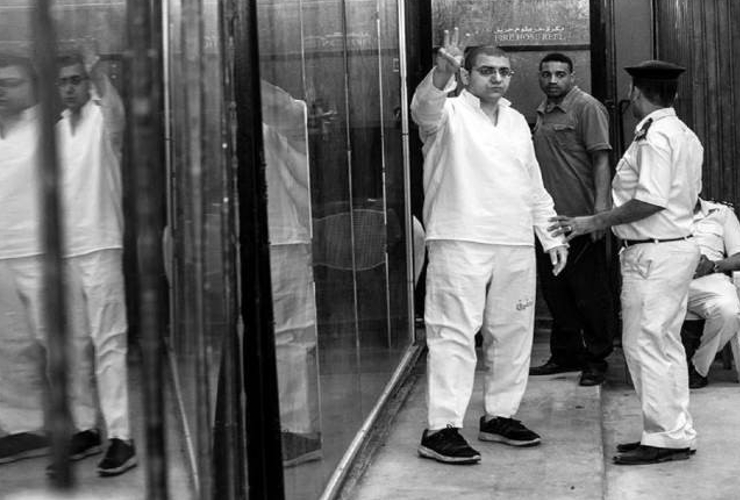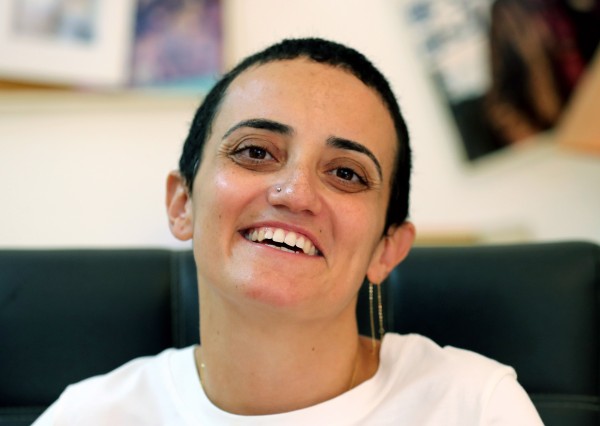As part of its #PressEgypt campaign, the International Press Institute (IPI), a global network of editors, reporters and media executives, calls on Egypt to release Ismail Alexandrani, a freelance journalist, researcher and social scientist who has been held in pre-trial detention without charges since 2015.
Alexandrani is the pen name of Ismail Al Sayed Mohamed Omar Toufic, a homage to Alexandria, where he was born and raised. He was arrested on November 29, 2015, at Hurghada Airport in Egypt, upon his arrival from Germany.
Egyptian authorities have accused Alexandrani of belonging to a banned group and spreading false news. However, they have provided no evidence of wrongdoing or an official indictment. Alexandrani’s pre-trial detention is renewed periodically, usually every 45 days. By January 2018 his pre-trial detention had been exhausted to its maximum legal length. Instead of being released, however, he was referred at that point to a military prosecutor.
Alexandrani’s main work, which has been published in various regional and international media such as Al Araby and on platforms such as The Wilson Center, revolves around the Sinai Peninsula in Egypt. Much of his research explores the social and political issues in that region, and provides professional analysis on the situation there. Most importantly, he has focused on the security situation in the Sinai, which has become a hotbed of insurgency and attacks on unarmed civilians, like the attack in November 2017 on a mosque in Al-Rawda village in Northern Sinai that left more than 300 people dead.
In addition, Alexandrani has focused on Islamism and political Islam. He has not only investigated armed militias in Sinai, but also discussed larger political groups such as the Muslim Brotherhood. Although Alexandrani has publicly opposed the Brotherhood, publishing several articles criticizing its actions and ideology, the Egyptian authorities have accused him of supporting the group. Currently, the Muslim Brotherhood is categorized as a terrorist organization and banned in Egypt. Those accused of having links to the group face severe penalties. Thousands of Brotherhood supporters and sympathizers are currently behind bars.
Many of Alexandrani’s readers were shocked to hear the Egyptian government’s allegations, as his work clearly distances him from any radical ideologies, much less any Islamist movements. Yet his critiques of the Egyptian military’s actions in Sinai, and his highlighting of the growing violent tendencies in the peninsula, were not welcomed by the government, which has been struggling to keep the region stable. Many public personalities, such as France’s Orient XXI editor Alain Gresh, view Alexandrani’s critical articles about Sinai as the main reason behind his arrest.
Shortly before to his arrest, Alexandrani published an article on the Lebanese website Assafir Arabi discussing the most recent Egyptian military operations in Sinai, arguing that Egypt’s latest strategy of creating a secure land strip along the Palestinian and Israeli borders had failed, and had instead escalated violence in the region. His expertise on Sinai and its tribal population made this article a strong piece of criticism against the military’s mission in the region, and it became a reference point for the opponents of that specific military offense.
Alexandrani’s peers admire his dedication, excellent work and outstanding knowledge in his respective field. His journalistic activities were not limited to Egypt; he was also a visiting fellow at the Woodrow Wilson Center’s Middle East Program in the United States. In addition, he wrote for several newspapers across the Middle East, such as Assafir Arabi and Al Modon in Lebanon.
In recent years, media freedom in Egypt has deteriorated sharply, with many local and international journalists being harassed, threatened and even imprisoned. Numerous television channels and online news outlets have been shut down in an attempt by the government to change the media landscape in its interest. Peter Greste, Mohammed Fahmy and Abdallah Al Shami are some of the better-known journalists who faced unjust imprisonment in Egypt; many more remain behind bars.
Upon his arrival in Egypt, after returning from several conferences he had participated in abroad, he was interrogated for hours. Later, he was arrested at Hurghada, and then shipped to Cairo, where he remains under detention. He is being held at Tora Prison.
In January 2018, he was referred to military prosecutors, as he had spent more than two years in pre-trial detention without official charges. This makes his situation significantly more difficult, as military prosecutions generally, and specifically in Egypt, have a reputation for imposing harsh sentences.
This timeline provides a general overview of the events surrounding his arrest.
IPI Head of Advocacy Ravi R. Prasad urged Egypt to release Alexandrani.
“Mr. Alexandrani’s detention for over two-and-a-half year without charges is unacceptable”, Prasad said. “It is a violation of both press and academic freedom, which are essential for a vibrant democracy. If President al-Sisi wishes to claim that Egypt under his rule is a democracy, then he must uphold democratic values by releasing Mr. Alexandrani and all other journalists who are being held without trial in Egypt.”
Various international human rights groups and academics personalities have issued statements calling on the Egyptian government to release him. Yet to this day he remains in prison without proof for any of the accusations he faces.



